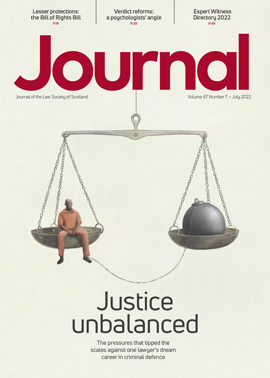New Ways – less conflict?

Over 12 years of casework, Shared Parenting Scotland has supported hundreds of parents who are struggling to make sense of their own emotions around separation and their palpable distress at the disruption of their relationship with their children.
At the same time, they discover that the Scottish legal system’s adversarial approach to resolving childcare disputes can trap them in hostility. The shorthand term is “high conflict”, when one or both parents have lost their sense of direction in pursuing what they will each vehemently insist is best for their children.
New Ways for Families® is an approach developed by the High Conflict Institute, created by Bill Eddy, previously a family lawyer, mediator and family therapist in the USA. It focuses on four big behavioural skills that actively help separating parents control at least their own part in the conflict: identifying difficult emotions; managing them; developing flexible thinking; and strategic parenting. It also concentrates on the impact high-conflict environments have on our children’s development and future opportunities.
Shared Parenting Scotland is exclusively licensed to offer the training in Scotland. It has recruited a number of coaches including experienced solicitors, family therapists and other professionals who have all trained with the High Conflict Institute. Their one-to-one interaction with each learner at three separate points over the learner’s course gives the programme its distinctiveness.
For the learners, the flexible training comprises 12 online modules which take about 12-15 hours to complete, at their own pace. The course features information, videos and role play, as well as a personal journal in which learners document their journey.
New Ways for Families® isn’t mediation. If both parents sign up they will be allocated different coaches. Nor is it legal advice. It empowers parents with the skills and insight to find their own way to put their children ahead of their urge to discredit each other.
A recent independent study from Orange County (USA) on the New Ways approach recorded 37% of parents noting an improved relationship with their co-parent, and 61% an improved relationship with their children.
Although only at the midpoint of our pilot, the feedback from parents undertaking the course has been extremely positive, not only in the context of their contact and residence issues but quickly transferring into other areas of their life.
A solicitor/trainer’s view: Fiona Mundy writes
I began work as a civil litigator in 1983 and handled my first proof in a custody and access (as it then was) case in 1984. I persuaded a sheriff to award joint residence in a divorce action in 1989, and have worked in family and general civil litigation ever since. I became a solicitor advocate in 2001.
I am acutely aware our current adversarial system in family cases frequently polarises positions, despite the introduction of child welfare hearings and attempts to bring cases involving childcare to conclusion faster. The system in my view allows parties to ”win”, and this in some cases damages relationships between parties and their children. I was very interested to hear about the New Ways for Families (NWFF) programme, as I felt it might provide separated parents with the tools to avoid, or defuse, some of the conflicts which can arise, potentially allowing them to stay out of court.
After investigating the programme, I decided to train as a coach. This involved online sessions with the High Conflict Institute, followed by three remote training sessions lasting nine hours. They were very informative, discussing, among other things, the behavioural patterns of high conflict individuals and how to recognise and deal with these.
Having completed the programme, I am now working with my first learner. I have found this a daunting, but very interesting, experience. The challenge is not to be dragged into the learner’s personal circumstances but to keep them focused on learning the NWFF core skills in the three sessions coaches have with their learners. Time is the great limiter, and the need to coach the skills while establishing a rapport with the learners.
They naturally will want to discuss their circumstances – they are looking for help. As a family lawyer, the temptation is to try and guide them, but the programme needs learners to practise the skills their online sessions are teaching them and to identify situations where they can profitably use these. Unfortunately, it doesn’t currently provide for follow-up sessions, but this may come in time.
As a lawyer, I hope that the skills the online programme and coaches are teaching may become generally recognised by the profession and used in our day-to-day practice. I hope family practitioners will refer separated parents to the programme even before conflict has arisen, to teach them the skills to avoid it. I hope sheriffs will refer litigants to the programme as soon as it becomes clear that agreement in relation to their children’s care is not possible.
This programme should not just be used for difficult cases. It should become routinely available for separated parents.
The skills taught are also relevant to the workplace, where conflict can arise all too easily, and indeed our day-to-day lives. They have universal applicability.
Perspectives
Features
Briefings
- Civil court: Issues on appeal
- Licensing: Minimum pricing – a genuine impact?
- Insolvency: How to admit joint creditor claims
- Tax: windfall and plastic packaging taxes raise stakes
- Immigration: Asylum system overhauled
- Scottish Solicitors' Discipline Tribunal: July 2022
- In-house: In with the stonework
- Property: Living with the Register of Overseas Entities
In practice
- OPG update: July 2022
- Public policy highlights: July 2022
- Gear up for the Scottish Legal Walks
- Disabled solicitor support group proposed
- Risk: Cybercrime – the hybrid worker prey
- Ask Ash: Piling it on
- TRS: time for a trusts trawl
- Know people, know business
- High street and hybrid
- Appreciation: Ian Leslie Shaw Balfour
- The Expert Witness Directory 2022
- Expert witness: case law update







